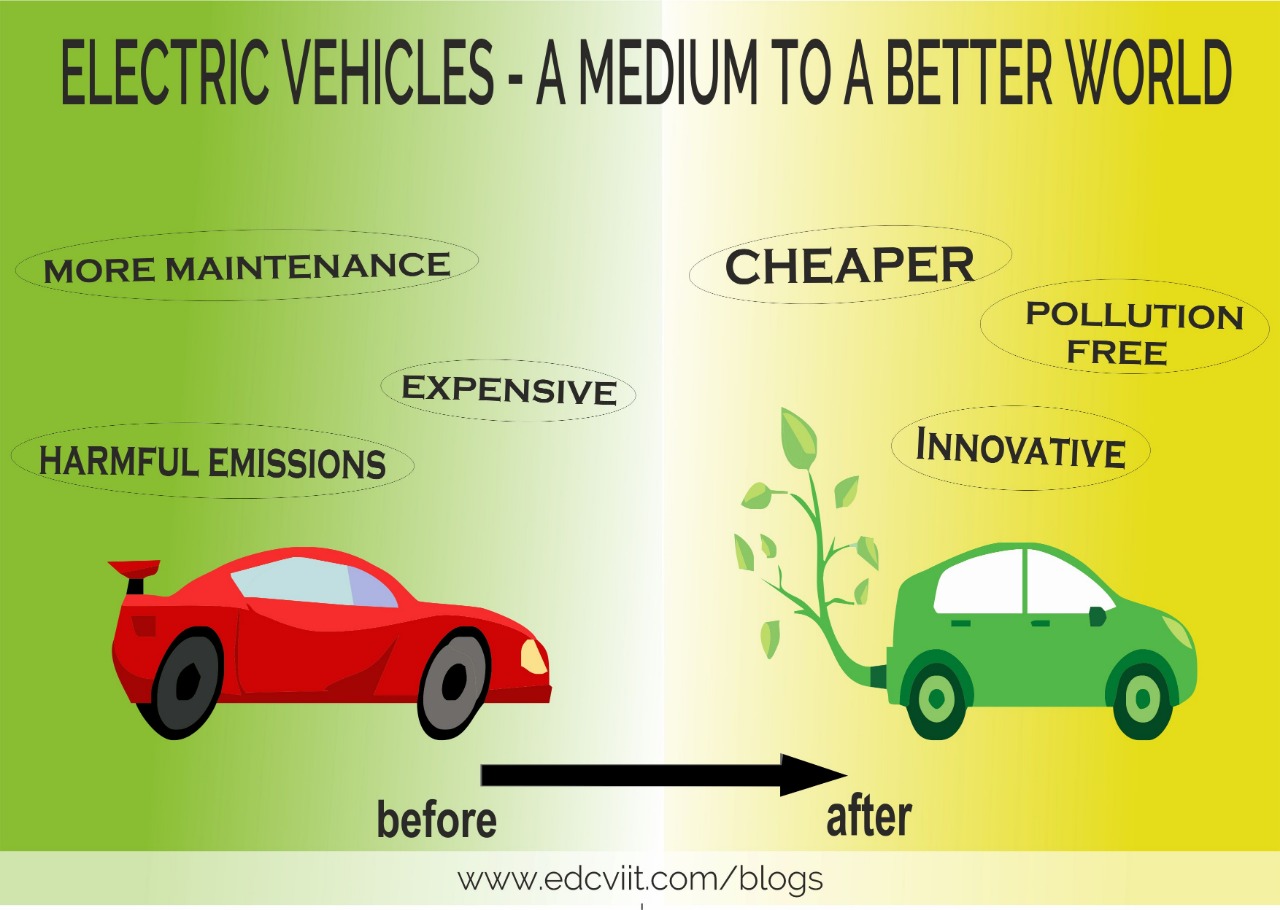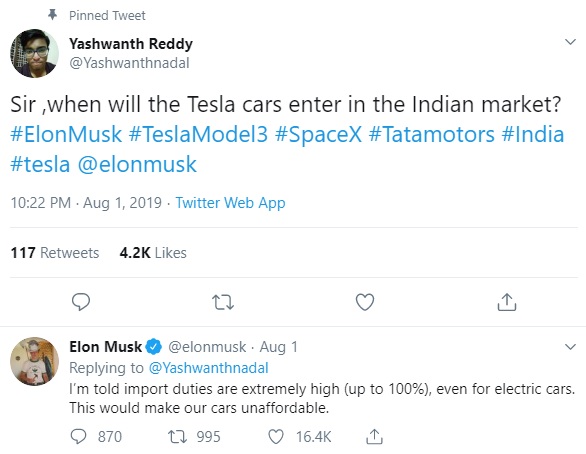Electric vehicles- A medium to a better world

- Indian Government invests Rs.1 Billion to support the upcoming Electric Vehicle Industry via various schemes and subsidies.
- Indian Automotive Industry facing the worst slowdown in history with sales dipping by one-third.
- Import tariffs on Foreign EV's raised heavily and a parade of subsidies given to home grown EV manufacturers and their consumers.
- Various vehicles set to launch in the next 3 years.
Electric vehicles- A medium to a better world
The Indian government is now offering subsidies worth a staggering Rs1 Billion for supporting the Electric Vehicle Industry. Out of this 1 Billion, 85.7 Million have been assigned for subsidies while the rest will be used for the development of infrastructure for manufacturing and charging facilities. But saving the environment might not be the sole reason for such a generous move.
The Indian Automobile Industry is facing the worst slowdown in history, general sales and an overall demand for a wide range of vehicles has dropped by nearly one third in the first quarter of 2019! 3,50,000 employees have been laid off by the auto sector to cut costs and not run into losses. Subsequently, the GST Collections from automobiles has dropped by 8%. As stated by the chairman of the Mahindra & Mahindra Group, Mr Anand Mahindra electric vehicles seem to be the only way out for the Indian Auto Industry!
Taking all this into picture, many big companies like Mahindra, Tata Motors, Hyundai are planning to launch their latest electric cars. The Japanese Moguls: Honda and Toyota are also planning to launch their EVs. But whenever the Japanese step into the auto industry they have changed the game all over. They offer highly reliable cars at the lowest rates that are also cheaper to use!
Even American companies like Tesla are looking to make their entry into the Indian market by 2020. One of Elon Musk's tweet gives us a picture of how unfavourable it would be for Tesla to enter the Indian market. Taking into consideration of this all, Indian Authorities have also made subsidies not applicable to high end cars ranging above Rs. 15 Lakhs so cars like Tesla should not benefit from this.

Similar is the case with the customs duties on imported buses, trucks, three wheelers and two wheelers. Import duties of each have been doubled to 50% and 30% respectively. 15% tariffs will be imposed onto Lithium Ion Battery Pack imports. Thus, by increasing the import duties on EVs and Battery Packs, also exempting pricey vehicles from subsidies, the Indian government is fiercely promoting local manufacturers thus helping our own economy.
Now, with the foreign manufacturers out of the pictures, the Indian Government has not just stopped at this. In the FAME Scheme i.e. Faster Adoption and Manufacturing of Electric Vehicles, plans have been made to start 4 lithium ion battery manufacturing plants in India to provide a lot of employment opportunities for the people. This has positively paved the way for budding entrepreneurs and start-ups to take charge. Start-ups like Ather Energy, Ion Energy, Emflux Motors. ATI Motors Tork Motorcycles and many others are already working hard on their EVs. Mahindra has already set up a Lithium Ion Battery Pack manufacturing plant in Maharashtra.
Apart from all these huge companies, even small start-ups have started working on electric vehicles. Ather being one of the most famous start-ups manufactures electric scooters. Ather got an initial funding of $1 million from the Flipkart founders as the seed capital. It went on to get a funding of $12 million and $30 million from Tiger Global and Hero respectively. This initiative by the Indian Government now will surely help the start-up grow even more.
Besides manufacturers, the government is also helping consumers in a huge way. The subsidies on EVs include a wide range of benefits to the consumers valid up till three years. They include two-wheelers, three-wheelers, cars and buses. But the main focus will be on public transport and two wheelers which seem to be of great popularity in India. Along with the subsidies, GST Council announced that the rates of GST on EV’s would be cut from 12%to 5% and EV chargers from 18% to 5% on 27th July 2019. In this way, a big boost will be given to shared mobility and will change the overall daily commute of the people. The State Govt will also help in this initiate by reducing the rates for Registration, Parking fees, Toll tax, etc.
Thus, via this bold move, the Government plans to boost the Indian economy by providing benefits to local manufacturers as well as consumers, at the same time side-lining foreign companies! All this has been done after recognizing the considerable potential EVs hold in the near future!
And don’t forget the primary reason behind EVs, to save the environment! As we all know, electric vehicles are noise-free, do not produce toxic gases, cheaper to maintain and cheaper to run. Even the previously faced issues like electric vehicles not being as powerful as IC engines are all in the past. Modern EV’s have shown us that they can not only match, but also outdo IC engines in terms of performance. Making it an all-round better mode of transport.
Having moved past all the technical obstacles, EVs seemed like the next logical step. But that calls for a huge change. The Indian Government used this opportunity to mould the change so as to benefit the citizens of the country. So, it definitely seems to be a win-win situation for the Indian manufacturers, consumers and the environment!